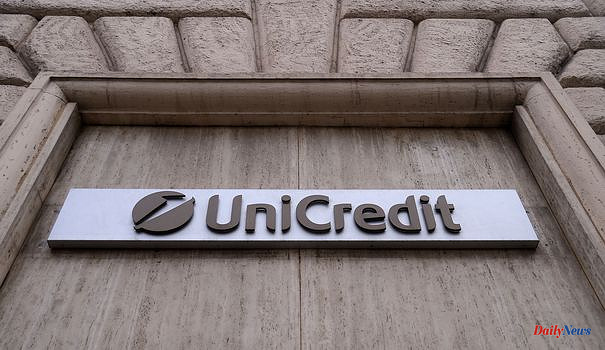The Italian bank UniCredit, faced like its counterparts with a difficult context, will cut 8,000 jobs and close 500 branches by 2023, while significantly increasing dividends paid to shareholders. This new drain will lead to a 12% drop in full-time equivalent (FTE) staff and 17% in the number of branches in Western Europe.
READ ALSO >> 44,000 fewer jobs: these European banks which will reduce their workforce
Since his arrival at the head of UniCredit in the summer of 2016, the Frenchman Jean-Pierre Mustier has led a major reorganization of the bank, already reducing the workforce by some 14,000 full-time equivalents and closing more than 900 branches.
Faced with a complicated environment, marked in particular by low interest rates and politico-commercial tensions, around ten European banks, including Société Générale, Deutsche Bank and HSBC, have announced since the beginning of the year the elimination of more of 44,000 positions. With UniCredit, the figure rises to over 52,000.
This downsizing will be carried out as part of the new 2020-2023 strategic plan that the leading Italian bank in terms of assets is presenting to investors in London on Tuesday. "In the previous plan, we acted in a socially responsible way and we will continue to do so," assured Jean-Pierre Mustier, referring to these job cuts at a conference.
READ ALSO >> Why the Deutsche Bank bankruptcy hypothesis is rather dubious
These measures will enable it to reduce its costs in Western Europe by €1 billion over the life of the plan, compared to 2018. solid foundations for the new plan" 2020-2023, commented Mustier.
Under his leadership, the bank, which in 2016 was among the worst performers in stress tests conducted by the European Banking Authority (EBA), has undergone a profound transformation. It has strengthened its capital by raising 13 billion euros and has cleaned up its accounts of billions of euros in bad debts - loans at risk of not being repaid - an operation that it intends to continue.
It also sold various assets deemed non-strategic, such as its stake in its former subsidiary Finecobank or in the main Italian merchant bank Mediobanca, and reduced that in the Turkish bank Yapi Kredi.
"Team 23" is built around four pillars: increasing and strengthening the customer base with simplified processes and innovative products, increasing productivity, disciplined risk management and capital management with sharp increase in dividends paid to shareholders.
Over the period 2020-2022, UniCredit will thus pay 40% of its net profit to shareholders (including 10% via the buyback of shares), against 20% announced in 2016 and 30% in 2017. This amount will increase to 50% in 2023 .
A total of eight billion euros will be paid out to shareholders between 2020 and 2023, including two billion through share buybacks. Regarding its revenues, UniCredit forecasts an average annual increase of 0.8% between 2018 and 2023, to reach 19.3 billion euros. At the same time, its net earnings per share must increase by 12% per year.
READ ALSO >> One in three banks in the world could disappear
At the Milan Stock Exchange, investors welcomed these announcements positively, but without excessive enthusiasm: thirty minutes after the opening, the title gained 1.23% to 12.52 euros, in a market up 0.93%.
Asked about possible cross-border mergers, Jean-Pierre Mustier stressed that the bank favored the buyback of shares and that it "could consider only small acquisitions", thus excluding a large-scale operation. He also indicated that in the field of insurance, it intended to continue working with partners, rather than developing this activity internally.
For the future, "we will continue to build on our competitive advantages: our network in Europe (...), the bank's benchmark position for small and medium-sized enterprises (SMEs) and our broad and growing customer base. ", he added. At the same time, the bank intends to increase its efficiency: it will become "paperless" in Italy in mid-2020, in Germany and Austria in 2021, and in the rest of Europe in 2023.












